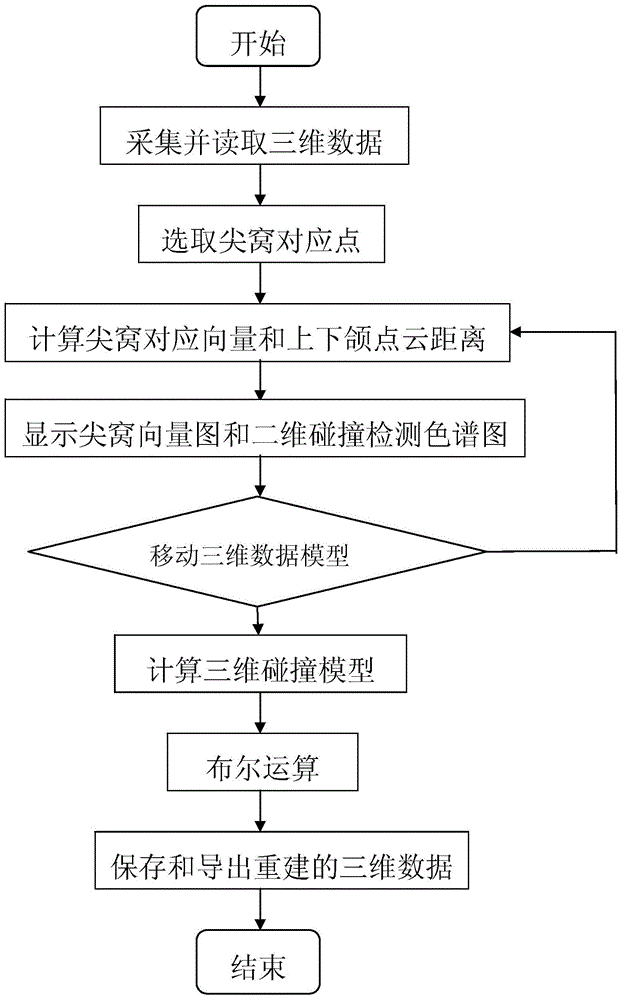Computer-aided design method for building tooth occluding relation
A computer-aided, occlusal relationship technology, applied in computing, 3D modeling, image data processing, etc., can solve problems such as poor real-time performance, time-consuming and laborious, and prolonged calculation time, and achieve the effect of avoiding errors
- Summary
- Abstract
- Description
- Claims
- Application Information
AI Technical Summary
Problems solved by technology
Method used
Image
Examples
Embodiment Construction
[0027] The present invention will be further described below in conjunction with the accompanying drawings, but the protection content of the present invention is not limited thereto.
[0028] Such as figure 1 Shown is a flowchart of a computer-aided design method for establishing occlusal relationship of the present invention.
[0029] 1. A computer-aided design method for establishing dental occlusal relationship, comprising the following steps:
[0030] 1) Collect and read the three-dimensional data model of the upper and lower dentition, including CT three-dimensional reconstruction data or tooth three-dimensional scanning data;
[0031] In step 1), the three-dimensional data includes three-dimensional data obtained by three-dimensional scanning or CT data three-dimensional reconstruction, and computer-aided design (Computer Assisted Design, CAD) software such as STL, wrl, obj, etc. can read and edit the three-dimensional data of the general format; When reading 3D data,...
PUM
 Login to View More
Login to View More Abstract
Description
Claims
Application Information
 Login to View More
Login to View More - R&D
- Intellectual Property
- Life Sciences
- Materials
- Tech Scout
- Unparalleled Data Quality
- Higher Quality Content
- 60% Fewer Hallucinations
Browse by: Latest US Patents, China's latest patents, Technical Efficacy Thesaurus, Application Domain, Technology Topic, Popular Technical Reports.
© 2025 PatSnap. All rights reserved.Legal|Privacy policy|Modern Slavery Act Transparency Statement|Sitemap|About US| Contact US: help@patsnap.com

